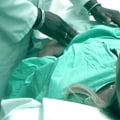A Medical Director is a trained physician who is responsible for organizing and coordinating medical services and services provided by other professionals in relation to patient care. They are in charge of ensuring the adequacy and quality of medical care and medical-related care, as well as creating and executing new medical policies and implementing new systems to contribute to the overall success of the company. Medical Directors are responsible for coordinating the objectives of a facility and ensuring that staff are working to meet those objectives. They must also monitor health care laws and regulations for implementation in daily practices, oversee facility or departmental budgets, and develop strategies to improve communication between medical professionals and patients.
Medical Directors are the coordinators of a center and ensure that staff members meet their goals. They are responsible for recruiting and managing doctors, nurses and other medical personnel, as well as overseeing all training that takes place at their facilities. Organizations may prefer applicants who have other certifications, such as the Certified Medical Director (CMD) offered by the American Board of Post-Acute and Long-Term Care Medicine. The quality of institutional health care is closely related to the efficiency and inadequacy of the medical director, and a critical discussion of his role is presented along with a focus on institutional policies, protocols and procedures.
The vast majority of medical directors work between 10 and 20 hours per week in this administrative role. Their duties include direct ambulatory care, development of clinical protocols, patient education, coordination and management of medical and administrative support staff. A Director of Health Services is responsible for evaluating and overseeing the overall health maintenance and promotion activities of a health department. Audits should also document the availability and effectiveness of physicians and paramedical personnel in case of emergencies or critical cases.
The Medical Director should promote multidisciplinary work for a better quality of care, with special attention to preserving the role of the treating physician in accordance with medical ethics and medical skills, especially in critical care units. In a health center, the Medical Director (MEd) is responsible for medical supervision and general regulation of all medical facets that may affect the institutional health system (IHS).A Clinical Operations Director is responsible for overseeing the overall operations of a clinical facility, ensuring the efficiency of staff performance in delivering the highest quality care services for patients. Once you have obtained the level of education you are comfortable with, you can start applying to companies to become a Medical Director. We use information from many resumes to find that both Medical Directors and Clinical Operations Managers are known to have skills such as patient care, utilization review, clinical staff, health care laws, regulations, budgets, communication strategies, recruitment, management, training oversight, certifications, audits, multidisciplinary work, medical ethics, supervision, general regulation.






